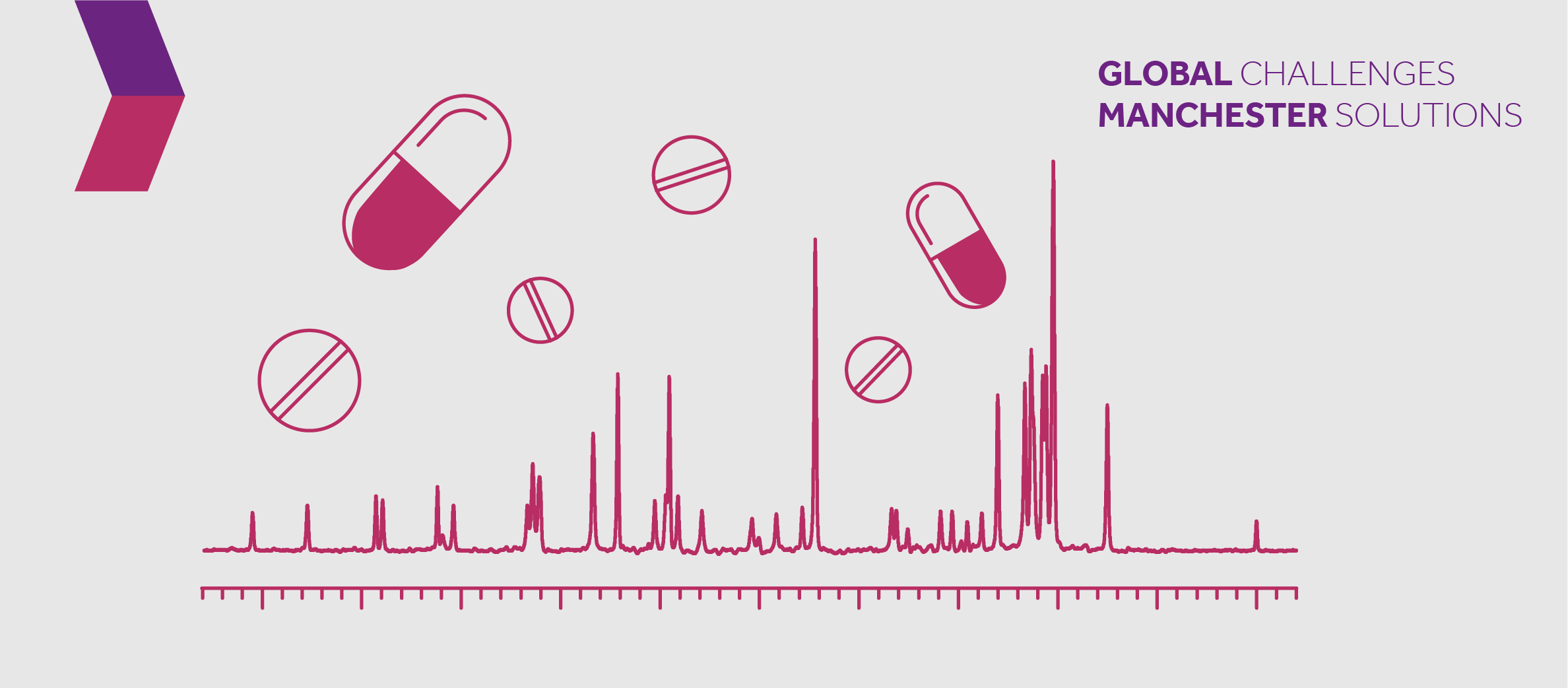Improving chemical identification in the chemical and pharmaceutical industries
Our pioneering research has driven major advances in nuclear magnetic resonance (NMR) analysis, helping chemical and pharmaceutical manufacturers to improve the speed, precision and detail of analyses, and commercialise products more quickly.

Impact highlights
- Techniques developed by Manchester researchers have increased the power of NMR spectroscopy.
- Over 90% of liquid-state NMR spectrometers sold now have pure shift and DOSY methods implemented.
- A new flavour component found using DOSY generated more than £100 million of sales.
The costly challenge of identifying new chemicals
Identifying chemical structures is vital for the pharmaceutical and chemical industries when developing new products such as drugs, flavours or additives. NMR spectroscopy is a fast and non-destructive technique that is a primary method for chemical analysis. Its great strength is that it provides information about the chemical environments of individual atoms. However, when determining the structures of complex molecules or analysing mixtures, there are often so many different signals that NMR spectra can be challenging to interpret.
“Molecular-level characterisation of drug substances and drug products is pivotal throughout pharmaceutical development for optimisation purposes and also for reducing the time to commercialisation.”
Stephen Byard
Head of Drug Product and Scientific Direction, Arcinova/Quotient Sciences
Technical solutions that improve performance
Two powerful and complementary families of techniques that increase the power of NMR spectroscopy have been developed by our researchers:
- Diffusion-ordered spectroscopy (DOSY) allows the individual NMR spectra of the different components of a mixture to be determined, separating the signals of molecules according to their different sizes. It eliminates the lengthy and costly process of physically separating a mixture into its chemical components before they are analysed. Even the spectra of molecules of the same size can be separated if differences in chemical behaviour are exploited.
- Pure shift NMR drastically simplifies spectra, giving a single signal for each distinct chemical site. It can improve the resolving power of NMR tenfold.
Increasing the speed, precision and detail of chemical analysis
The techniques were developed partly in collaboration with industrial partners, including Pfizer, AstraZeneca, Givaudan and Bruker. The software needed to run the experiments and analyse their results has been made available as open-source packages, ensuring that the techniques are open to all users in academia and industry.
The new methods have also been integrated into the spectrometer systems made by the leading NMR manufacturers Bruker and JEOL, broadening the potential user base. Bruker highlights that “processing software for diffusion experiments is now an essential part of our Dynamics Centre software suite” and that “pure shift methods have become an indispensable part of our standard experiment library and are used routinely by our customers.”
Manchester’s DOSY and pure shift techniques are now used widely across the chemical and pharmaceutical industries and allow food, pharmaceutical and agrochemical companies to solve analytical problems with increased speed, precision and detail.
Examples of DOSY and pure shift applications include:
- characterising impurities in a pharmaceutical product used for advanced cancer treatment that has now been commercialised and is used worldwide;
- assessing the physical stability of potential products to determine whether they meet technical requirements for human use – a key step towards commercial adoption;
- measuring the rates of diffusion of a fungicide in different solvents, helping to reduce waste and maximise yield in the production process;
- helping to establish the mechanism of action of a crop protection product.
Collaborate with us
We develop partnerships and opportunities with experts across disciplines, services and facilities, to support innovation and business growth.
Research detail
Research leads
Professor Mathias Nilsson
Professor of Physical Chemistry
Professor Gareth Morris
Professor of Physical Chemistry
Supporting researcher
Dr Ralph Adams
Senior Research Fellow
